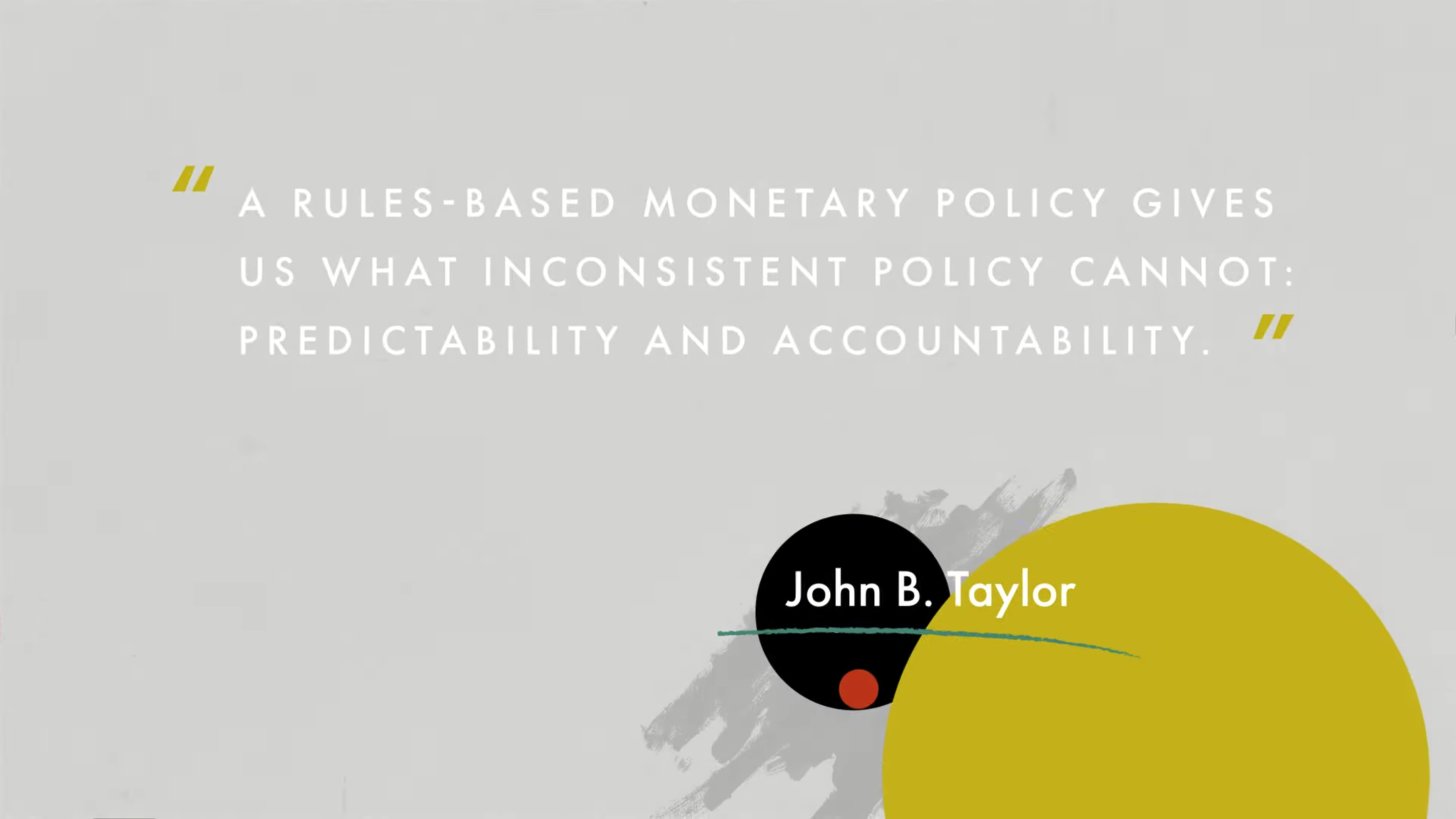Key Facts
“It’s a pervasive issue of policy of all kinds. Basic principles of policy try to distinguish between rules that describe how monetary policy or other kinds of policies behave, versus discretion, where it’s basically [that] the policy makers can do whatever they want, at any point in time. A rule is just a description of how the instrument of policy changes when things in the economy change. There’s lots of advantages for rules: Predictability. You know that if there’s a deep recession, interest rates will go down. Accountability. If there’s a rule that says when the economy booms, interest rates rise, they can say we’re being accountable. In the case of monetary policy, a rule or a strategy that’s more consistent over time helps.”

